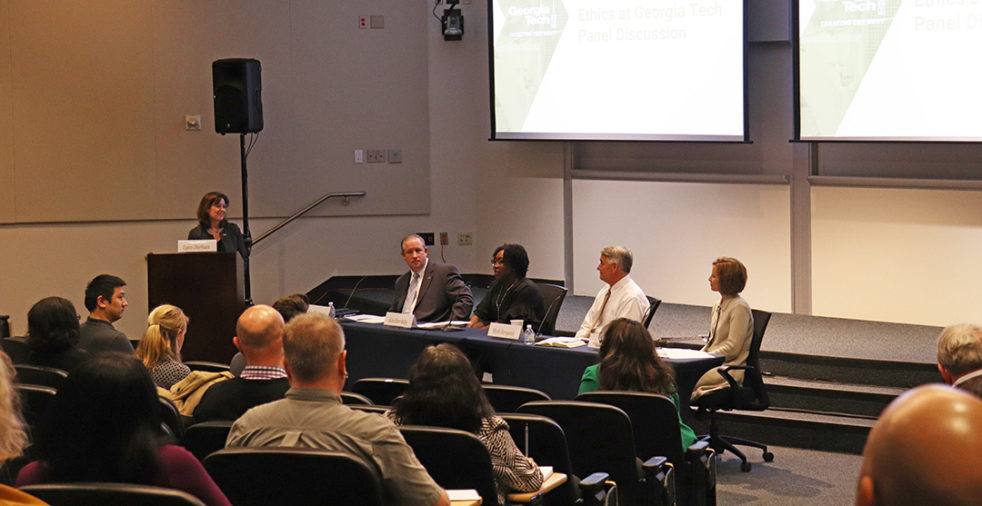On Tuesday, members of the campus community gathered in an auditorium at the Global Learning Center to listen to a panel of Institute leaders discuss exactly what steps the Institute has taken to address the many ethics issues that came to light in summer 2018.
Titled “The Year Ahead: Ethics at Georgia Tech,” the event acknowledged the ethics difficulties that the Institute faced in the past but served primarily as a vehicle to update the campus on the progress made and the next steps to be taken. An important update is that the Ethical Culture Indicator, a survey developed by the BB&T Center for Ethical Leadership at the University of North Georgia that was distributed to campus last September, is ready to share its quantitative data before the main report is released.
Lynn Durham, associate vice president and chief of staff, explained that the Institute plans to release the information from those surveys to each individual department before broadly sharing information with the department.
“We want your leaders, the unit leaders, to have a conversation, instead of just posting it to a website without any context, without any additional information,” Durham said. “Each unit leader has a chart, and it shows the Institute averages for the questions, and then it shows their department averages for those questions.”
Each unit leader is expected to have a meeting discussing their department’s results by March 15, Durham said.
Afterward, the Ethical Culture Indicator results will be shared to campus.
Much of the current work in leadership has been to clarify faculty and staff on what constitutes conflict of interest or ethics issues.
“We get emails that come in where people have questions just trying to resolve policy, trying to understand what is required,” said Aisha Oliver-Staley, interim vice president for Ethics, Compliance and Management. “The inquiries range from consulting activities, employee startups, board memberships, activities outside of your regular duties, gifts, Girl Scout cookies.”
Multiple panelists advised workers should talk to their managers first and only go around them to report when managers are unreceptive or there are indications that something is wrong.
